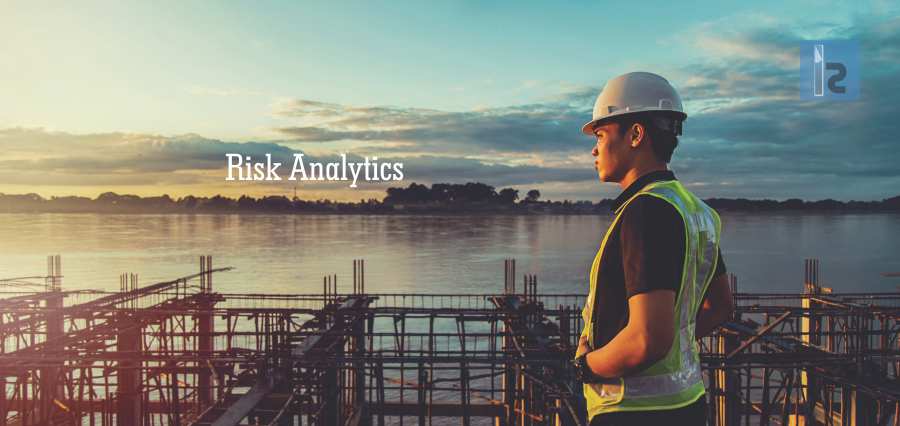Risk management is one of the most important duties of project managers in the construction space. A little negligence over risk management results into plenty of problems. Effective risk management requires the application of a systematic methodology, and more importantly, it the indulgence of knowledge and experience. The core purpose of risk management in construction projects is to provide a safe work environment for the workers which lead to the better accomplishment of goals.
For years, eroding risk management in construction projects has led to unwanted results and poor quality. Let us consider, if the management inefficiency and incorrect analysis of cost and time factors occur then it may lead to delay in the project and may impose further costs. Also, recent studies disclose the lack of systematic risk management methods in most of construction projects which lead to negative consequences in implementing the given task. Hence, these issues in the construction space can be resolved by considering the following factors each time with sheer attention. These elements are cost, time, quality, environmental, and security.
Cost Element
Today, managing the construction is confronted with unforeseen situations in programming and construction of private and public accommodations. Few causes of delay and gradual pace in projects occurs due to improper understanding of the project’s size, inappropriate estimation of obligatory resources, fragile cost calculations and budget assessment as well as weakness in project’s cost management. Hence, it is obvious that keeping a flow with the times and employing modern science and techniques ensure better management of project costs.
Budget planning is one the most important task of project programmers. Also, providing the required credit for the development of project objectives is one of the difficult tasks of the project managers’, especially in large-scale projects. Additionally, providing credits, organizing arrangement of activities, and determining their fundamentals play a weighty role in the effective application of the project about the financial credits schedules.
Time Element
One more factor that plays a key role in accomplishing goals of construction projects, is, the time element. Time management is the main principle of construction projects execution; and if neglected, the project falls into degradation and further costs is imposed on the project. The major issue in handling large-scale projects is the delay in completing its various phases which creates a delay in completion of the project. If a project’s operation is delayed, national resources would be wasted and sometimes, the project may lose its technical and economical acceptability.
Quality Element
After the time factor, the most important principle in construction projects is Quality. Since low quality execution of construction projects causes the investments to go to waste, on the other hand, increase in quality leads to project durability, prevents investment, and financial waste. Also, apt management of project safety prevents probable damages.
However, the chief concern is to provide a high-quality product and service that satisfies the client’s expectations. For this, the total expense of achieving this purpose must also be considered wisely and these expenses would be acceptable only if the long-term effects of the costs for quality work on the organization are positive. This ensures that the most important ingredient while implementing quality management systems is the accurate knowledge of quality costs. Observing this significance, identifying required resources and accurate control and well management of costs along with the analysis of quality costs have emerged as the crucial factors to be considered.
Environmental Element
The working environment is more prone to dangers and risks. Hence, it is always recommended to establish order in workshops, collect and construction waste, and to take precautionary measures to avoid low performance. Additionally, adjacent buildings and urban areas must be taken into consideration.
Underground projects are closely related to geotechnical issues. For instance structure collapse must be given high priority. Let’s consider the preventive measures in the geotechnical project that undergo three stages: short term (at the beginning of the project), medium term (during the operation of vibrating machines), and long term (after the project and during revenue operation). Thus, on the basis of the project and its concerning issues, a detailed project safety operation must be set and regulations must be established for proper project execution, repairing and maintenance, and regular examinations.
Safety Element
Safety comprises three major elements i.e. security, health, and peace. Safety in construction projects consists of the security and health of all the workers along with the security and health of every individual who lives or passes through adjacent areas of construction project environment. It also deals with observing buildings, vehicles, structures, and equipment inside the project’s worksite. However, an accident is the most harmful incident caused by an unsafe action or unsafe situation or a combination of both; which has an adverse effect on the completion of an activity.
Nevertheless, to attain desirable standards in construction safety, social as well as cultural backgrounds need to be introduced in the community. Later on, technical and executive infrastructures should be implemented in organizations that are active in the field of construction. Last but not least, all levels of construction projects, including employers, consultant engineers, project managers, and contractors must be given appropriate technical knowledge. Apparently, this task requires special attention from top managers of the industry along with a determined programming.
To achieve success, right from the laborers to the managers is equally responsible as responsibility is the main component in the safety concern. A recent study reveals that various factors such as employees’ work environment, project timing, scheduled programming, skilled workforce, fulfilling client’s expectations, and credible managers are the important elements to cultivate risk management in construction projects. This makes us believe in the fact that risk control and risk management are the preeminent ways to avoid possible losses and damages while constructing projects.


